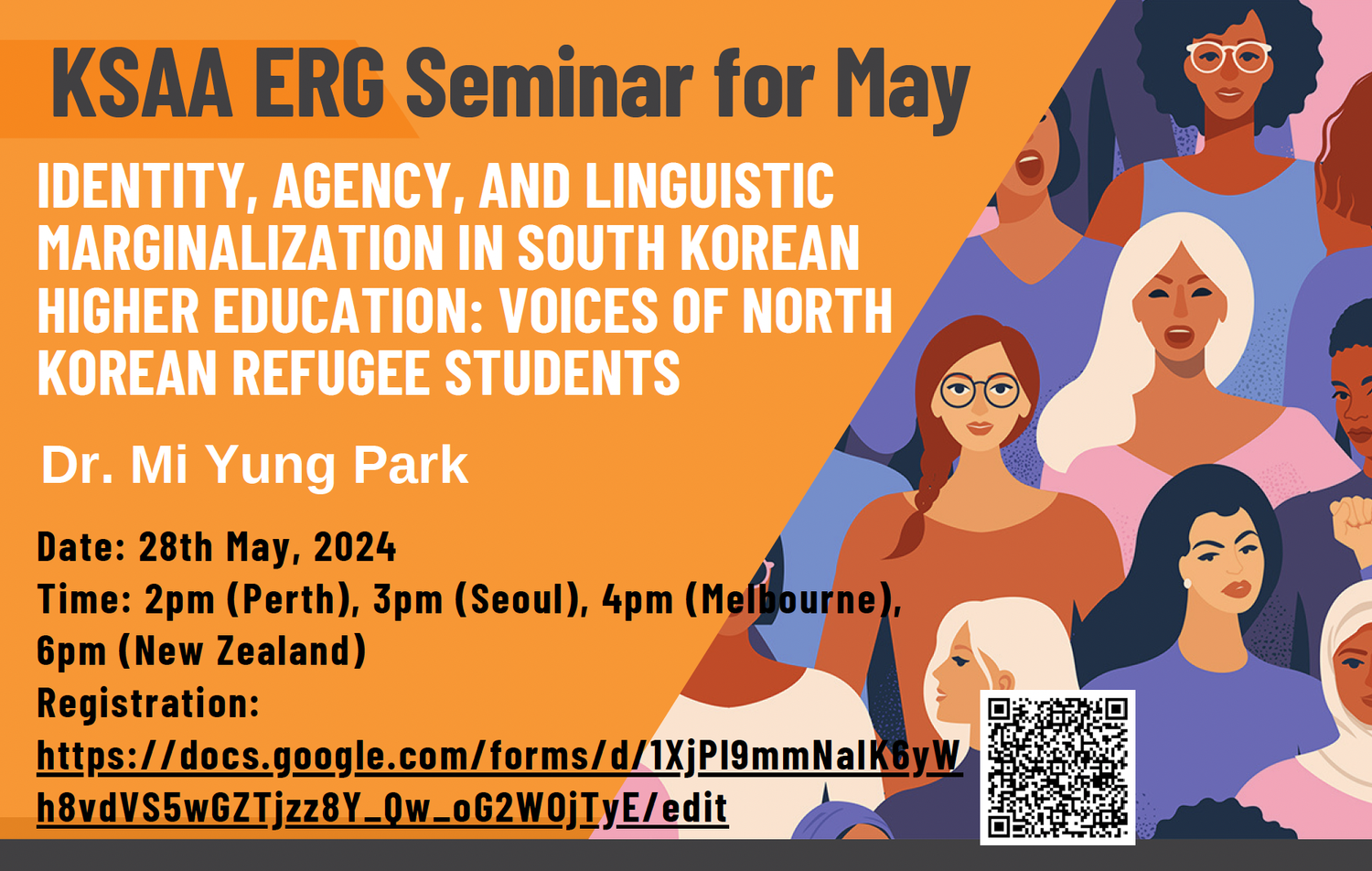Korean Language, Society, and Identity -
Melbourne Asia Review Webinar
Korea has long been regarded as a culturally and linguistically homogeneous country. The dominant ideology of one nation, one race, and one language has inevitably led to essentialized constructions of “Koreanness”. This strong sense of Korean ethnic nationalism and identity, which is often grounded in the ability to speak Korean or to speak it with the “right” accent, has posed serious problems, driving discrimination and prejudice. Perceived outsiders to this assumed homogeneity are often racialised and marginalised. Nevertheless, this surface homogeneity is ideological more than real, and hides a multiethnic and linguistically diverse population. Cracks are now appearing on the surface as (and perhaps because) Korea is becoming more multilingual and multicultural.
This special issue of Melbourne Asia Review is born out of the need to challenge the dominant ideology by foregrounding the perspective of those people most negatively affected by it. Accessibility to language resources and means becomes an overarching keyword, a point of view from which to reflect upon issues at the intersection of Korean society and national and individual identity by considering how scant access to, or total lack of, linguistic resources hinders multilingual, multicultural, and diverse people’s participation in Korea’s increasingly multiethnic society.
Read Edition 20 of the Melbourne Asia Review online for free
Korean Studies Association of Australasia (KSAA) - Emerging Researchers Group Seminar
There has been an influx of North Korean refugees defecting to South Korea to seek freedom and better economic, educational, and professional opportunities. Thus, an increasing number of North Korean students are entering university in South Korea. Previous studies that examined North Korean students’ adaptation to South Korean universities have focused on their difficulty with English language learning. However, little scholarly attention has been paid to other challenges they encounter in their courses, particularly how they cope with linguistic marginalization and insecurity, which can directly affect their daily academic engagement and social interaction. In this presentation, Mi Yung Park will highlight what strategies North Korean students use to negotiate and reposition their identity when they are discriminated against as linguistic and cultural Other, and their identity as Korean is delegitimized. Mi Yung will end by discussing implications for educational policy and practice in South Korean higher education as a crucial space and context for refugee students’ identity (re)construction, and the support they need to integrate and participate more fully in academic communities.

